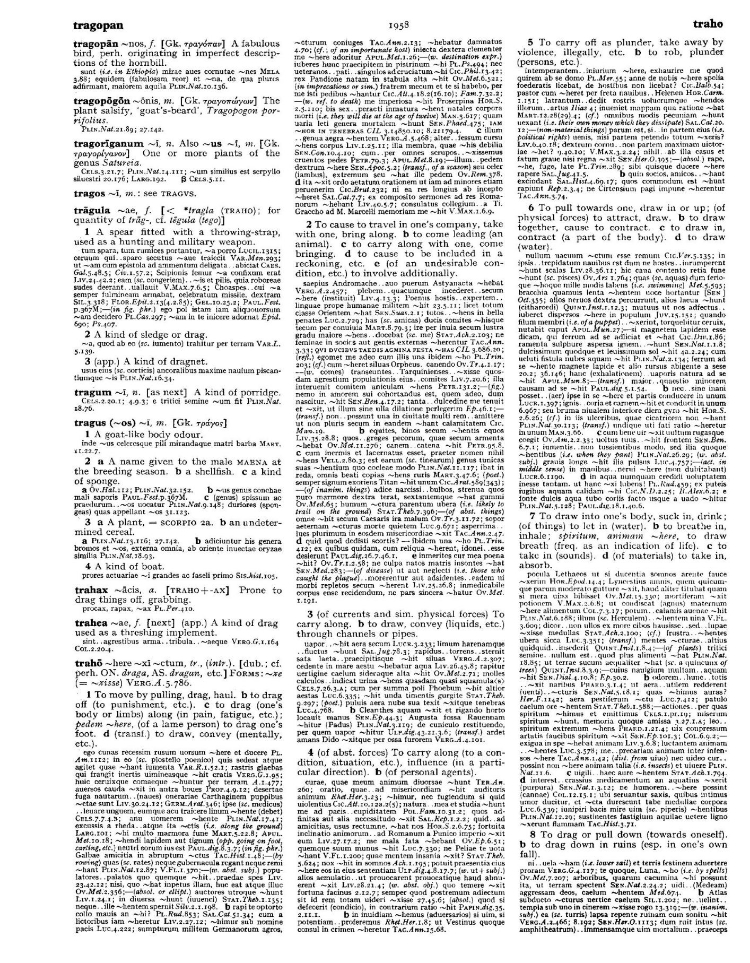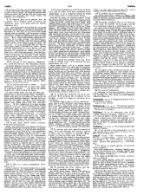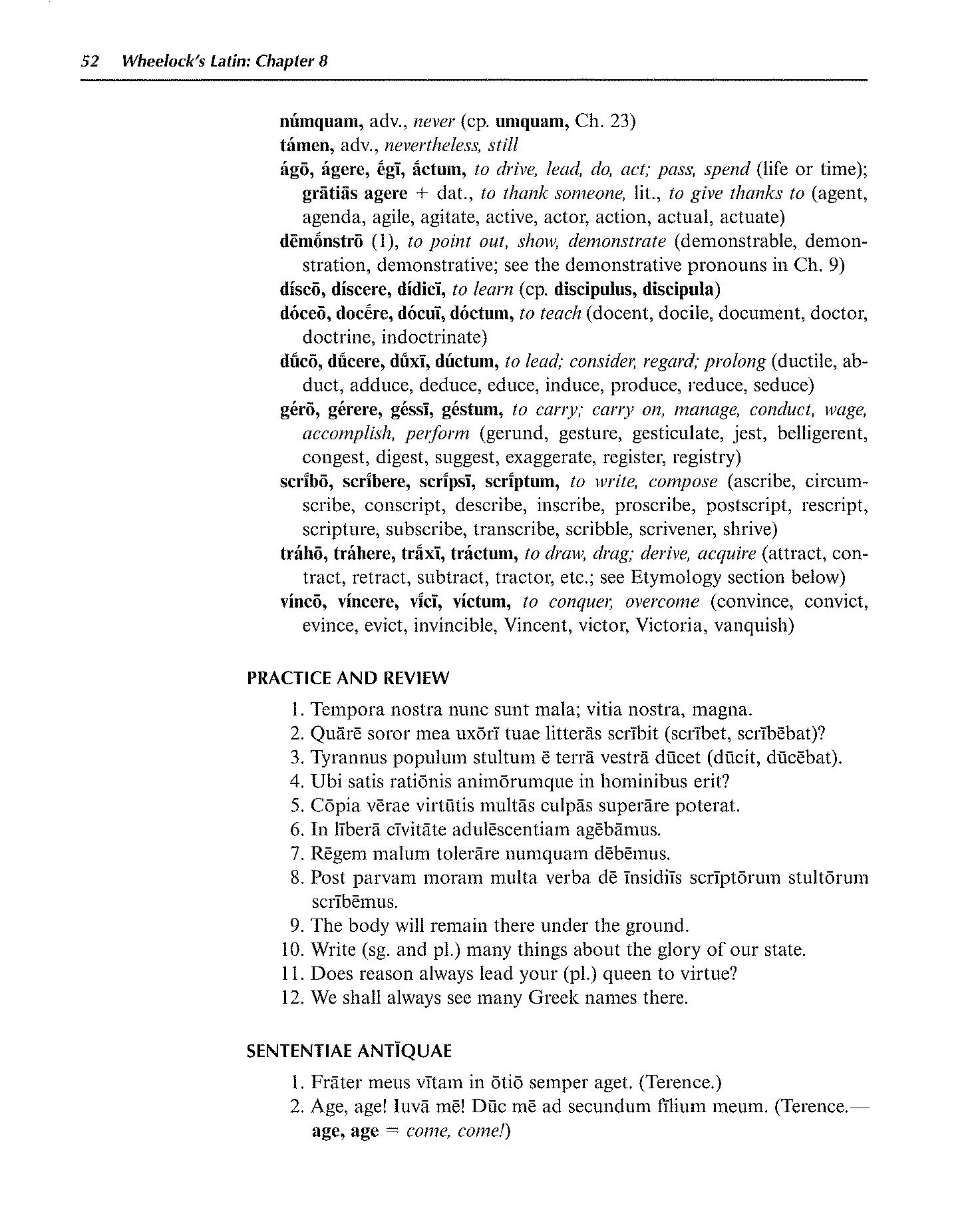
page_listing.tpl
page_subListingDetails.tpl
sub_listingDetails_style1.tpl
sub_listingDetails.title.tpl
trahere to draw
trahere is a Latin Verb that primarily means to draw.
Definitions for trahere
Wheelock's Latin
Verb
- 1
to draw, drag; derive, acquire
English derivatives:
attract contract retract subtract tractor
Oxford Latin Dictionary
Verb
- 1
To move by pulling, drag, haul. (b) to drag off (to punisment, etc.). (c) to drag (one's body or limbs) along (in pain, fatigue, etc.); pedem ~here, (of a lame person) to drag one's foot. (d) transf.) to draw, convey (mentally. etc.).
- 2
To cause to travel in one's company, take with one, bring along. (b) to come leading (an animal). (c) to carry along with one, come bringing. (d) to cause to be included in a reckoning, etc. (e) (of an undesirable condition, etc.) to involve additionally.
- 3
(of currents and sim. physical forces) To carry along. (b) to drawm convey (liquidsm etc.) throught channels or pipes.
- 4
(of abst. forces) To carry along (to a condition,situation, etc.), influence (in a particular direction). (b) (of personal agents).
- 5
To carry off as plunder, take violence, illegally, etc. (b) to rob, (persons, etc.).
Sentences with trahere
Latin to English
Sententiās multās pulchrāsque ex virīs antīquīs trāximus.Compare We have drawn many beautiful thoughts from the ancients.
Aliī studiō pecūniae atque laudis trahuntur, nōs dēbēmus amōre vēritātis sapientiaeque trahī.Compare Others are drawn by eagerness for (lit., of) money and fame; we ought to be drawn by love of truth and wisdom.
Trahimur omnēs studiō laudes. (Cicero, Pro Archia poeta XI.26)Compare We are all attracted by the desire for praise.
Vive pius - moriere; pius cole sacra - colentem mors gravis a templis in cava busta trahet; carminibus confide bonis - iacet, ecce, Tibullus: vix manet e toto, parva quod urna capit!Compare Live the duteous life - you will die; be faithful in your worship - in the very act of worship heavy death will drag you from the temple to the hollow tomb; put your trust in beautiful song - behold, Tibullus lies dead: from his whole self there scarce remains what the slight urn receives!
Equus pars magnus nans lorum a puppis traho.Compare A great part of the horses were dragged by their reins from the sterns, swimming.
Quo fata trahunt retrahuntque sequamur; quidquid erit, superanda omnis fortuna ferendo est.Compare Let us follow our destiny, ebb or flow. Whatever may happen, we master fortune by fully accepting it.
Namque coepere nobilitas dignitatem, populus libertatem in lubidinam vortere, sibi quisque ducere, trahere, rapere.Compare For the nobles began to turn their dignity, and the people their liberty into license, and every man took, robbbed and pillaged for himself.
Segniter sequor, quantus longe a domus traho.Compare They will follow more slowly, in proportion as they shall be drawn further from home.
Conjugation table for trahere
Cactus2000
| ACTIVE | |
| Indicative present | Indicative imperfect |
| trahō trahis trahit trahimus trahitis trahunt | trahēbam trahēbās trahēbat trahēbāmus trahēbātis trahēbant |
| Indicative perfect | Indicative pluperfect |
| trāxī trāxistī trāxit trāximus trāxistis trāxērunt / trāxēre | trāxeram trāxerās trāxerat trāxerāmus trāxerātis trāxerant |
| Indicative future | Indicative future perfect |
| traham trahēs trahet trahēmus trahētis trahent | trāxerō trāxeris trāxerit trāxerimus trāxeritis trāxerint |
| Subjunctive present | Subjunctive imperfect |
| traham trahās trahat trahāmus trahātis trahant | traherem traherēs traheret traherēmus traherētis traherent |
| Subjunctive perfect | Subjunctive pluperfect |
| trāxerim trāxeris trāxerit trāxerimus trāxeritis trāxerint | trāxissem trāxissēs trāxisset trāxissēmus trāxissētis trāxissent |
Infinitive present trahere Infinitive perfect trāxisse Infinitive future tractūrum esse | Imperative present trahe trahite Imperative future trahitō trahitō trahitōte trahuntō |
| PASSIVE | |
| Indicative present | Indicative imperfect |
| trahor traheris trahitur trahimur trahiminī trahuntur | trahēbar trahēbāris / trahēbāre trahēbātur trahēbāmur trahēbāminī trahēbantur |
| Indicative perfect | Indicative pluperfect |
| tractus sum tractus es tractus est tractī sumus tractī estis tractī sunt | tractus eram tractus erās tractus erat tractī erāmus tractī erātis tractī erant |
| Indicative future | Indicative future perfect |
| trahar trahēris / trahēre trahētur trahēmur trahēminī trahentur | tractus erō tractus eris tractus erit tractī erimus tractī eritis tractī erunt |
| Subjunctive present | Subjunctive imperfect |
| trahar trahāris / trahāre trahātur trahāmur trahāminī trahantur | traherer traherēris / traherēre traherētur traherēmur traherēminī traherentur |
| Subjunctive perfect | Subjunctive pluperfect |
| tractus sim tractus sīs tractus sit tractī sīmus tractī sītis tractī sint | tractus essem tractus essēs tractus esset tractī essēmus tractī essētis tractī essent |
Infinitive present trahī Infinitive perfect tractum esse Infinitive future tractum īrī | Imperative present trahere trahiminī Imperative future trahitor trahitor - trahuntor |
| PARTICIPLE | ||
| Participle present active | ||
| Nom. | trahēns | trahentēs |
| Gen. | trahentis | trahentium |
| Dat. | trahentī | trahentibus |
| Acc. | trahentem | trahentēs |
| Abl. | trahente | trahentibus |
| Participle future active | ||
| Nom. | tractūrus | tractūrī |
| Gen. | tractūrī | tractūrōrum |
| Dat. | tractūrō | tractūrīs |
| Acc. | tractūrum | tractūrōs |
| Abl. | tractūrō | tractūrīs |
| Participle perfect passive | ||
| Nom. | tractus | tractī |
| Gen. | tractī | tractōrum |
| Dat. | tractō | tractīs |
| Acc. | tractum | tractōs |
| Abl. | tractō | tractīs |
| Gerundive | ||
| Nom. | trahendus | trahendī |
| Gen. | trahendī | trahendōrum |
| Dat. | trahendō | trahendīs |
| Acc. | trahendum | trahendōs |
| Abl. | trahendō | trahendīs |
| Gerund | Supine | |
| Nom. | trahere | tractum |
| Gen. | trahendī | tractū |
| Dat. | trahendō | |
| Acc. | trahendum | |
| Abl. | trahendō | |
Data sources
Notes
- Definitions
- Frederick M. Wheelock, Wheelock's Latin, 6th ed., rev. Richard A. LaFleur (New York, NY: HarperCollins Publishers, 2005): 52.
- P. G. W. Glare, Oxford Latin Dictionary, Vols. 1-8 (Oxford: Clarendon Press, 1982): 1958.
- Word frequencies
- Christopher Francese, "Latin Core Vocabulary," Dickinson College Commentaries, last modified 2014, http://dcc.dickinson.edu.
- Paul B. Diederich, The Frequency of Latin Words and Their Endings, PhD diss., (Columbia University, 1939).
- Louis Delatte, Suzanne Govaerts, Joseph Denooz, and Etienne Evrard, Dictionnaire fréquentiel et index inverse de la langue latine [Frequency Dictionary and Inverse Index of the Latin Language] (Liège, Belgium: Laboratoire d'analyse statistique des langues anciennes de l'Université de Liège [L.A.S.L.A.], 1981): 120.
Bibliography
Allen, Joseph H. Allen and Greenough's New Latin Grammar for Schools and Colleges: Founded on Comparative Grammar. Edited by James B. Greenough, George L. Kittredge, Albert A. Howard, and Benjamin L. D'Ooge. Boston, MA: Ginn & Company, 1903.
Crystal, David. A Dictionary of Linguistics and Phonetics. 6th ed. Oxford, UK: Blackwell Publishing, 2008.
Delatte, Louis, Suzanne Govaerts, Joseph Denooz, and Etienne Evrard. Dictionnaire fréquentiel et index inverse de la langue latine [Frequency Dictionary and Inverse Index of the Latin Language]. Liège, Belgium: Laboratoire d'analyse statistique des langues anciennes de l'Université de Liège (L.A.S.L.A.), 1981.
Diederich, Paul B. The Frequency of Latin Words and Their Endings. PhD diss., Columbia University, 1939.
Francese, Christopher. "Latin Core Vocabulary." Dickinson College Commentaries. Last modified 2014. http://dcc.dickinson.edu/latin-vocabulary-list.
Gildersleeve, Basil L., and Gonzales Lodge. Gildersleeve's Latin Grammar: Third Edition, Revised, and Enlarged. 3rd ed. London, England: Macmillan and Co., 1903.
Glare, Peter G.W. Oxford Latin Dictionary. Vols. 1-8. Oxford, England: Clarendon Press, 1982.
Krüger, Bernd. "Latin Conjugation Tables." Cactus2000. Accessed May 5, 2023. https://latin.cactus2000.de/index.en.php.
Pierson, Nick. "Sound of Text." Accessed October 26, 2019. https://soundoftext.com.
Wheelock, Frederick M. Wheelock's Latin. 6th ed. Revised by Richard A. LaFleur. New York, NY: HarperCollins Publishers, 2005.
Wiktionary Contributors. "Victionarium." Wikimedia Foundation, Inc. Updated March 18, 2019. https://la.wiktionary.org/wiki/Victionarium:Pagina_prima.
Citation
Chicago (17th ed.)
Allo Contributors. "trahō, trahere, traxī, tractum (v.) - Latin Word Definition." Allo Latin Dictionary. Last modified . Accessed January 30, 2026. http://ancientlanguages.org/latin/dictionary/traho-trahere-traxi-tractum.
Entry created on . Last updated on .








